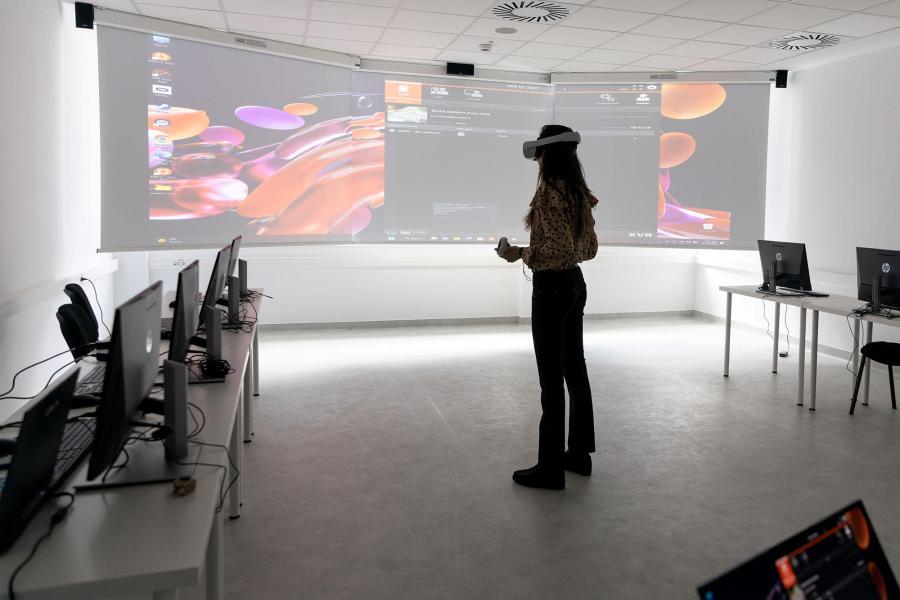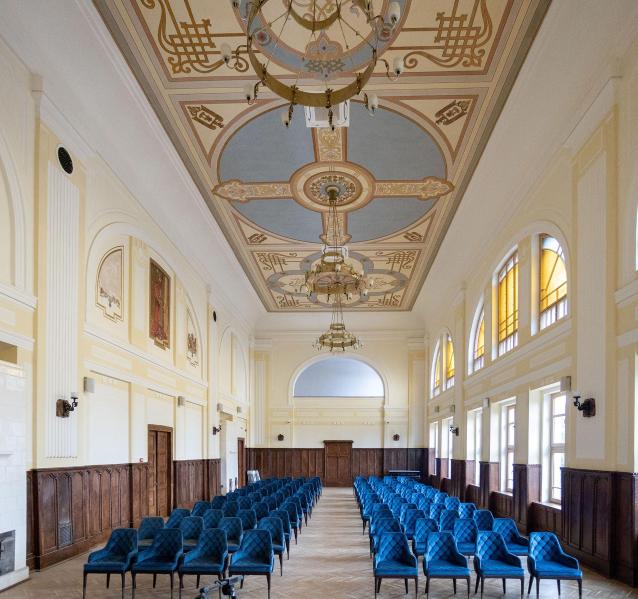The University of Medicine, Pharmacy, Science, and Technology in Târgu Mureş, Romania upgrades infrastructure and clinical labs to boost specialist training and educate future medical professionals.
Romanian universities undertake a tenth of the research and development carried out at the average European higher education institution.
This is partly because its current educational, residential and administrative infrastructure does not allow them to be more competitive internationally. But the uncertainty of the return on investment inherent in these activities also makes it much harder to get funding.
Take the George Emil Palade University of Medicine, Pharmacy, Science, and Technology of Târgu Mureș. Founded in 1945, its most prominent area is its medical research in neurology, cardiology, oncology and materials science.
While being among Romania’s top six medical schools, Târgu Mureș found to keep up with the growing number of local and international students, it needed to expand its current infrastructure.
So, the school worked on a solution together with the European Investment Bank, signed in August 2022.
The Bank lent €20 million towards the refurbishment and upgrade of educational infrastructure and clinical laboratories on the campus. The university also received financial and technical advisory support from the EIB Advisory Hub.
“It’s important to have a modern place to learn, where students, teachers and researchers can use the latest technology in their educational activities,” says Professor Leonard Azamfirei, the rector of the university. “But we want to do more than that, by applying for projects with important local industries and making education accessible to all students.”

Making old buildings more energy efficient
The university is now able to renovate and modernise its seven buildings, making them energy efficient.
“Energy efficiency is a key factor to consider during the renovation process,” says Didier Bosman, a senior engineer at the European Investment Bank who is responsible for education projects. “The university worked with the Advisory Hub and local experts to understand how it could make both the old and the new buildings more sustainable.”
By adopting sustainable eco-friendly measures, the university reduces its carbon footprint, saves energy, and lowers its operational costs.
The university is also constructing two new buildings as part of the campus development programme, which will serve as new educational centres. They will also have more modern learning spaces, educational equipment, and additional residences – with capacity for 400 people – for students and visiting staff.
Tackling cohesion by keeping talent in the region
The George Emil Palade University currently counts some 10 500 students (over 3 500 enrolled in the Medicine faculty) and over 1 400 employees. It’s the only school in health sciences in the country to offer courses in Romanian, English and Hungarian.
By renovating and expanding its infrastructure, the university creates new jobs in education and research, creating more room to invite specialised teachers and other health professionals. This strengthens the research centres to train future generations of doctors, engineers, economists, lawyers, and teachers.

This is key to improving resilience to public health challenges and countering the skills drain of Romanian health professionals leaving the country to work abroad.
To combat the skills gap, the university took a step further. It is working on implementing the “dual education system,” which combines work experience, like apprenticeships in a company, and vocational education in a complete educational programme.
“This is the first time this approach to education will be implemented in universities in Romania, so it will be a big change,” Azamfirei says. “It will allow people who can’t afford to study or who have difficult backgrounds to access higher education. They will work with our national and international partners which will give them the tools to handle the everchanging job market.”
The creation of new buildings, particularly the student residence, also opens up jobs in maintenance and administration.
The crucial support of the EIB Advisory Hub
The European Investment Advisory Hub, with the support of Innovation Finance Advisory Division and Projects Directorate, have supported Târgu Mureș University in the structuring of its investment proposal.
Similar advisory support was provided to other universities in Romania, leading to the successful deployment of the Bank’s €100 million streamlined support for university investment in Romania (the “Romania Higher Education Programme Loan” initiative) launched in 2020.
“The advantageous financial conditions, including attractive interest rates and long maturities offered by the EIB are not the only success factor in the Programme Loan deployment,” says Andrea Dondé, a loan officer at the European Investment Bank. “The peculiarity of the accounting system employed by Romanian universities on one side, and the thoroughness of EIB technical due diligence on the other could have represented some serious obstacles to project appraisal.”
The external consultants hired by the EIB Advisory Hub supported the Universities involved in the Programme throughout the whole due diligence process, facilitating the transfer of information and hence the full absorption of EIB funds dedicated to the initiative.”
EIB Advisory services offer support in preparing, structuring and implementing projects that are then funded by the European Investment Bank or other financiers, with a strong focus on innovation, environmental and social sustainability and climate impact.
